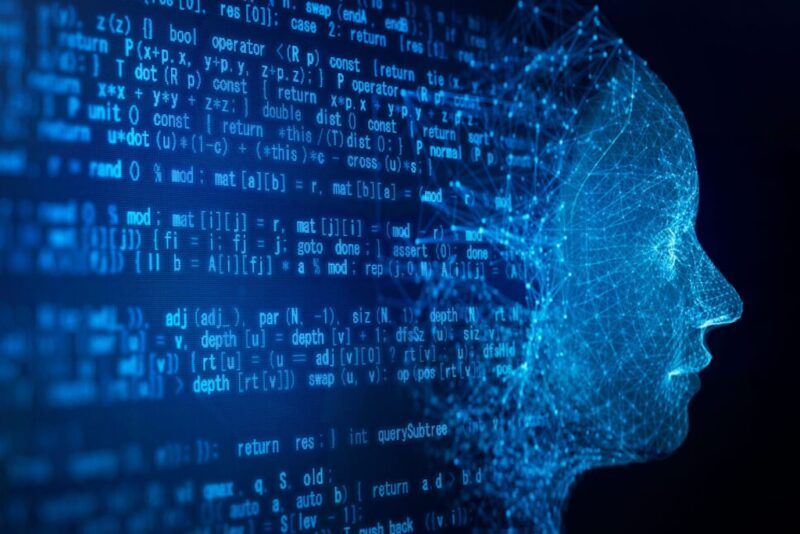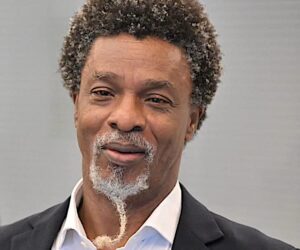
If we can reclaim AI and social media as instruments of agency, rather than engines of manipulation, they may yet strengthen Nigerian democracy — by expanding participation, deepening accountability, and enabling new forms of solidarity. If we fail, these same technologies will entrench inequality, hollow out public reasoning, and concentrate power in opaque algorithmic and corporate hands.
For developing democracies such as Nigeria, the advent of artificial intelligence and social media holds profound promise for societal transformation, even as it introduces new risks. Recent global experiences, in the United States, Europe, Asia and the Latin world, show how digital platforms can galvanise social movements and drive radical change, yet also unleash moral, cultural, cognitive, and political harms. I will argue that the convergence of AI and social media now functions as a new Leviathan — an emergent arena in which the age-old struggles over power, authority, knowledge, and democratic legitimacy are being renegotiated. Focusing on two critical domains — the electoral sphere, where digital platforms simultaneously enable citizen mobilisation and sophisticated disinformation and surveillance; and the educational sphere, where AI offers democratising potential while threatening to deepen structural inequality — how these technologies are reshaping the conditions of democratic life will be interrogated. Drawing on critical theories of technology and power, it moves beyond the simplistic binaries of “tech-for-good” or “tech-for-evil,” showing instead how digital systems are reconfiguring the struggle over truth, legitimacy, and authority. In doing so, it invites a re-examination of what democratic citizenship means in 21st-century Nigeria and across its wider region.
Introduction: Knowledge, Democracy, and the Legacy of Great Ife
The intellectual culture of Obafemi Awolowo University — “Great Ife” — has long been marked by disciplined scepticism, rigorous debate, and vibrant student activism. For many of its alumni, the university did not simply award degrees; it inducted them into a community that valued excellence in scholarship, resilience of character, community spirit, and leadership in public life.
That heritage is a fitting starting point for a reflection on AI, social media, and democratic power. At its best, Great Ife stands for a tradition in which knowledge is not reduced to narrow utility but is treated as a public good that sustains critical inquiry and civic responsibility. Yet, we now inhabit a world in which knowledge is increasingly framed as technical competence, employability, or data to be captured and monetised. The expansion of digital technologies has intensified this trend, even as it has opened new spaces for expression and participation.
I will proceed from a simple but demanding question: What does it mean to know — and to act politically — in an environment in which AI-driven social media platforms structure how citizens see the world?
Knowledge as an End in Itself
In many contemporary policy discourses, education is conceived primarily as a pipeline for producing technically skilled workers. Learning becomes a mechanism for economic growth; and knowledge is judged by its contribution to productivity. This utilitarian view narrows the horizons of education and ignores its deeper role in shaping judgment, imagination, and an ethical life.
African and global intellectual traditions offer a richer alternative. Amílcar Cabral ties knowledge to historical agency: a people must recover their capacity to narrate their own world if they are to be free. Kwasi Wiredu argues for “conceptual decolonisation,” insisting that African societies think through their own categories and linguistic resources, rather than merely borrowing imported conceptual schemes.
Their ideas resonate with John Dewey’s view of education as a continuous process of democratic life, and with Hannah Arendt’s insistence that education must safeguard the capacity for judgment and new beginnings. For these thinkers, knowledge is not simply instrumental; it is emancipatory. It allows individuals and communities to make sense of their world, to deliberate about their future, and to act with dignity.
A democracy premised on such an understanding of knowledge requires citizens who are capable, not only of technical skills but of reflection, argument, and ethical reasoning. The quality of democratic power thus depends on the quality of the knowledge practices that sustain public life.
Politics, Democracy, and the Life of the Mind
Cabral, Wiredu, Dewey, and Arendt converge on a shared insight: Politics is not simply the competition for office or the management of state institutions. It is the ongoing work of shaping a shared world.
For Cabral, politics begins when colonised peoples reclaim their capacity to narrate their own history. Democracy, in this view, is a cultural and ethical project rooted in dignity and participation. Wiredu, working in a postcolonial philosophical frame, emphasises consensus, dialogue, and the adaptation of indigenous forms of reasoning to modern governance.
Dewey describes democracy as a “way of life,” sustained by habits of communication and shared inquiry. Arendt locates politics in the human capacity for “action”: appearing before others, speaking, judging, and initiating new beginnings. Democracy survives where people can think together in public and act on the basis of considered judgment.
From this perspective, knowledge understood as inquiry and understanding is the lifeblood of democratic politics. Without it, citizens are reduced to spectators or instruments; with it, they can become authors of their collective lives.
The Media as the New Public Arena
If democracy depends on knowledge and judgment, then the media play a central role in shaping democratic power. Today, the media — especially social media platforms — are the primary arena in which citizens encounter public issues, negotiate identities, and form opinions.
Yet, this arena no longer operates primarily according to the norms of slow deliberation that underpinned earlier public spheres. Contemporary media ecosystems are governed by the imperatives of speed, virality, emotional intensity, and algorithmic targeting. They reward sensationalism over nuance, reaction over reflection.
Cabral would caution that nations lose themselves when they lose control over their narratives. In Nigeria, global platforms mediate how citizens see their own politics, cultures, and histories. Wiredu would worry that imported digital logics can displace indigenous practices of reasoning and consensus-building. Dewey would note that democracy weakens if the media fail to cultivate reflective intelligence. Arendt would warn that when public discourse collapses into noise and spectacle, the conditions for judgment and new beginnings are undermined.
The crisis of the media is therefore not only a crisis of misinformation, but of knowledge: a crisis of how societies come to know, interpret, and understand the world.
From Technological Progress to Political Choice
One popular narrative portrays AI and social media as inevitable outcomes of scientific progress, neutral instruments that can be used for good or ill, depending on the user’s intent. This story obscures the political and economic forces that have shaped these technologies.
The history of computing, cybernetics, and networked communication is closely tied to Cold War priorities: surveillance, prediction, and strategic control. Social media platforms arose not simply because new technical possibilities emerged, but because business models were developed to monetise attention, harvest personal data, and sell predictive insights about human behaviour.
AI and social media are thus artifacts of political intention and economic logic, not merely expressions of scientific curiosity. They encode assumptions about what human beings are for — whether citizens are agents capable of judgment, or data points to be analysed and optimised.
Recognising this history is essential for democratic politics. It reminds us that technology is not destiny. Societies choose, explicitly or implicitly, how these systems will be built, deployed, and governed.
Media, Technology, and the Social Mission
Because AI and social media are deeply entangled with political and economic power, the media as an institution has become central to determining whether these technologies will deepen or diminish democracy.
On one hand, digital technologies have greatly enhanced the capacity of Nigerian newsrooms and civil society actors. Investigative journalism now uses open-source intelligence (OSINT), satellite imagery, data analysis, and crowdsourced evidence to expose corruption, track conflict, and verify electoral claims. Platforms such as PREMIUM TIMES, the International Centre for Investigative Reporting, HumAngle, and the fact-checking initiative, Dubawa, have leveraged digital tools to challenge official narratives and counter disinformation.
On the other hand, the same technological infrastructure has transformed media practice in ways that threaten its civic mission. Attention-driven advertising models reward speed and outrage. Algorithmic curation determines what many citizens see long before they choose to see it. Viral circulation can drown out careful reasoning, and the push for engagement can erode editorial judgment.
The normative task before the media is therefore twofold: First, to harness new tools in support of public accountability and informed citizenship. Secondly, to resist becoming merely an extension of attention markets and algorithmic logics that undermine reflection and democratic responsibility.
To succeed, media institutions must see themselves not just as distributors of content, but as custodians of meaning and stewards of the conditions under which public judgment can occur.
McLuhan, Innis, and the Architecture of Perception
Marshall McLuhan’s famous dictum that “the medium is the message” remains a powerful prism for understanding our current moment. McLuhan argued that the form of a medium — its speed, sensory mix, and rhythms — shapes how societies think and feel, regardless of the specific content transmitted. Media, in this sense, reorganise perception and social relations.
Harold Innis earlier showed that civilisations are structured by the “bias” of their dominant media. Some media favour durability and memory (time-biased); others favour distance, administration, and rapid distribution (space-biased). The transition from stone, clay, and manuscript to print, telegraphy, radio, and digital networks has repeatedly reconfigured authority, collective memory, and the organisation of power.
AI-driven social media platforms are profoundly space-biased. They privilege circulation, immediacy, and expansion. Their design encourages rapid sharing, short attention spans, and continuous engagement. As thought accelerates, the capacity for sustained reflection and careful judgment diminishes.
For a democracy like Nigeria’s — already strained by economic hardship, institutional fragility, and deep social cleavages — this acceleration has serious implications. It can render politics more volatile, intensify ethnic and religious polarisation, and create incentives for political actors to govern by spectacle rather than by policy.
Innis and McLuhan help us see that the challenge is not only to correct false content, but to recognise that the very architecture of our communication systems is reshaping democratic life.
Castells and the Struggle for Meaning
Manuel Castells extends these insights into the digital age with his analysis of “network society.” For Castells, power flows increasingly through the ability to shape communication networks — to programme them and to influence the cultural codes through which people interpret reality.
In Nigeria, this is visible in multiple domains. Elections are waged not only through rallies and traditional media but through targeted messaging on WhatsApp, TikTok, Instagram, and X (formerly Twitter). Protest movements such as #EndSARS gained extraordinary momentum by leveraging digital networks, but also struggled with fragmentation and disinformation that spread through the same channels. Popular culture — Afrobeats, Nollywood, comedy skits, memes — travels through these networks, framing how Nigerians imagine success, identity, and belonging.
These platforms do not merely reflect Nigerian society; they actively organise what becomes visible and sayable, which voices are amplified or marginalised, and which narratives of the nation gain traction. The struggle for democratic power is therefore also a struggle for meaning within networked architectures.
Yet, much of our academic and policy analysis still treats media as secondary to “real” politics. We have been slower to grasp that, in a networked society, politics itself is increasingly conducted through the programming and contestation of digital communication networks.
Zuboff, Surveillance Capitalism, and Data Colonialism
Shoshana Zuboff’s concept of “surveillance capitalism” adds an indispensable dimension to this analysis. She argues that we are witnessing a new economic order in which human experience is systematically harvested as data, analysed by AI, and used to predict — and ultimately shape — behaviour for profit and control.
This logic is not entirely new. As early as 1961, the Simulmatics Corporation in the United States advertised its ability to use computers to predict human behaviours. What is novel today is the scale, ubiquity, and granularity of data extraction. Social media platforms and many AI applications are built on business models that treat users not as citizens, but as sources of behavioural surplus.
The implications for Nigeria and other African countries are profound. While Western and Asian corporations own the infrastructures — data centres, cloud platforms, algorithmic systems — African populations provide much of the raw material for behavioural data mining. This dynamic has been described as data colonialism: a new form of extraction in which everyday life becomes a resource controlled from elsewhere.
For democracy, this means that electoral campaigns, issues advocacy, and even religious mobilisation can be shaped by actors who control the tools for micro-targeting and sentiment engineering. For development, it means that the continent risks being locked into a dependent relationship, in which value generated from African data primarily accrues elsewhere.
Permit me to highlight three consequences particularly relevant to democratic power in Nigeria from Zuboff’s work:
Behavioural modification: This is so evident for those who suffer under the tyranny of WhatsApp and other social platforms that have now been transformed to stages of cage fights among Nigerians. This conforms to the fact we all know now that AI-driven platforms are engineered to keep users engaged, often by emphasising emotionally charged content. Political communication becomes less about persuasion and more about triggering predictable reactions.
Epistemic fragmentation: This is just as evident as the behavioural modification. Personalised feeds and recommendation systems mean that citizens inhabit different informational worlds. Disagreement is no longer simply about values or interests, but about basic facts.
Loss of sovereignty: Lastly, we now know that when infrastructures of communication and data analysis are owned elsewhere, national and civic actors lose control over the conditions under which public opinion is formed. This environment poses new challenges for democratic accountability, civic education, and regulatory governance.
Reconfiguring Democratic Power in Nigeria
How, then, are AI and social media concretely reconfiguring democratic power in Nigeria? Several key dynamics stand out.
Expanded Visibility and New Actors: First, digital platforms have lowered barriers to entry into public discourse. Youth movements, feminist collectives, regional activists, and marginalised communities can speak in their own voices, circumventing traditional gatekeepers. The #EndSARS protests made visible a generation’s anger at police brutality and wider governance failures, using hashtags, live streams, and global solidarity campaigns.
This expanded visibility redistributes symbolic power. It challenges established media houses, party hierarchies, and state actors who once monopolised the means of public communication. In this sense, AI-enhanced social media can democratise attention.
Intensified Manipulation and Polarisation
At the same time, political elites have quickly learnt to exploit these platforms. Armies of trolls, bots, and paid influencers deploy targeted disinformation and propaganda during electoral cycles. AI-generated images, deepfakes, and synthetic texts increasingly complicate efforts to verify information.
Ethnic and religious narratives are weaponised to inflame fear and resentment. Algorithmic systems, optimised for engagement rather than truth, often amplify the most divisive content. Democratic power thus becomes entangled with the capacity to manipulate emotion at scale.
Reshaping Institutions and Practices
Third, institutions themselves are being reshaped. Electoral commissions must now manage not only physical polling processes but also digital information environments. Courts confront new questions about online speech and evidence. Political parties organise around war rooms that monitor online sentiment in real time.
Media organisations are pushed to adapt to platform logics in order to survive, sometimes at the cost of depth and investigative commitment. Civil society groups increasingly integrate data science, digital security, and media literacy into their work.
Contestation over Infrastructures and Rules
Finally, democratic power is increasingly exercised through struggles over infrastructure and regulation. Debates about data protection, content moderation, platform taxation, and AI policy are, at root, debates about who will control the architectures through which Nigerians see and interpret their world.
If platforms set the rules unilaterally, democratic accountability shifts away from elected institutions. If states respond with heavy-handed censorship, digital rights and civic freedoms suffer. The challenge is to develop regulatory frameworks — and civic norms — that protect rights, foster innovation, and secure genuine public oversight.
Conclusion: Democracy After the New Leviathan
I have argued here that AI and social media are not merely tools used within Nigeria’s democracy; they are transforming the very terrain on which democratic power is organised.
By structuring visibility, shaping attention, and mediating knowledge, AI-driven platforms influence who can participate in public life, what kinds of claims gain traction, and how citizens form judgments. They empower new actors and solidarities, as seen in youth movements and digital investigative journalism, while simultaneously enabling sophisticated disinformation, polarisation, and behavioural manipulation.
Drawing on Cabral and Wiredu, we can say that the struggle for democratic power in Nigeria today is also a struggle over narrative and conceptual sovereignty. Following Dewey and Arendt, we see that the survival of democracy depends on sustaining spaces where citizens can think together, deliberate, and act with judgment. Innis and McLuhan remind us that our media environment shapes the rhythms of attention and the architecture of public life. Castells shows that power increasingly lies in the capacity to programme communication networks, while Zuboff warns that surveillance capitalism threatens to turn citizens into objects of data extraction and behavioural control.
Taken together, these insights illuminate the central challenge: AI and social media have become a new Leviathan, reorganising democratic power in Nigeria by reconfiguring the conditions under which knowledge, perception, and political action are formed.
The response cannot be left to engineers, corporations, or security agencies alone. It must involve journalists, scholars, teachers, activists, policymakers, and citizens committed to defending knowledge as a practice of human flourishing. Nigeria needs media institutions that act as custodians of meaning; educational systems that cultivate critical digital literacy; regulatory frameworks that safeguard rights and constrain predatory practices; and civic cultures that insist technology serve human dignity rather than undermine it.
If we can reclaim AI and social media as instruments of agency, rather than engines of manipulation, they may yet strengthen Nigerian democracy — by expanding participation, deepening accountability, and enabling new forms of solidarity. If we fail, these same technologies will entrench inequality, hollow out public reasoning, and concentrate power in opaque algorithmic and corporate hands.
The reconfiguration of democratic power is already under way. The urgent task before Nigeria is to ensure that this transformation bends toward freedom, justice, and a more thoughtful public life. For that to happen, our universities will have to embrace full democratic culture the that privileges the primacy of skepticism and debates in every facet of our intellectual journey.
Dapo Olorunyomi (OON) is the publisher of PREMIUM TIMES and CEO of the Centre for Journalism Innovation and Development (CJID)
This was delivered in the Distinguished Alumni Lecture Series of the Faculty of Arts, Obafemi Awolowo University, Ile Ife, at the Oduduwa Hall on Tuesday, 18th November.











